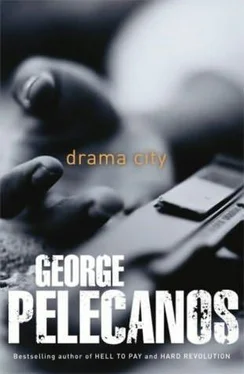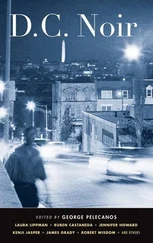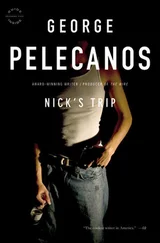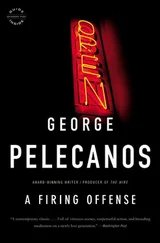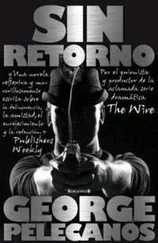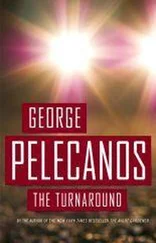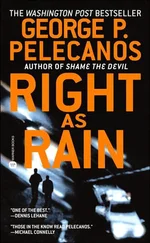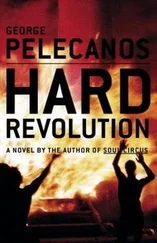George Pelecanos - Drama City
Здесь есть возможность читать онлайн «George Pelecanos - Drama City» весь текст электронной книги совершенно бесплатно (целиком полную версию без сокращений). В некоторых случаях можно слушать аудио, скачать через торрент в формате fb2 и присутствует краткое содержание. Жанр: Криминальный детектив, на английском языке. Описание произведения, (предисловие) а так же отзывы посетителей доступны на портале библиотеки ЛибКат.
- Название:Drama City
- Автор:
- Жанр:
- Год:неизвестен
- ISBN:нет данных
- Рейтинг книги:3 / 5. Голосов: 1
-
Избранное:Добавить в избранное
- Отзывы:
-
Ваша оценка:
- 60
- 1
- 2
- 3
- 4
- 5
Drama City: краткое содержание, описание и аннотация
Предлагаем к чтению аннотацию, описание, краткое содержание или предисловие (зависит от того, что написал сам автор книги «Drama City»). Если вы не нашли необходимую информацию о книге — напишите в комментариях, мы постараемся отыскать её.
Drama City — читать онлайн бесплатно полную книгу (весь текст) целиком
Ниже представлен текст книги, разбитый по страницам. Система сохранения места последней прочитанной страницы, позволяет с удобством читать онлайн бесплатно книгу «Drama City», без необходимости каждый раз заново искать на чём Вы остановились. Поставьте закладку, и сможете в любой момент перейти на страницу, на которой закончили чтение.
Интервал:
Закладка:
George Pelecanos
Drama City
ONE
Lorenzo Brown opened his eyes. He stared at a cracked plaster ceiling and cleared his head.
Lorenzo was not in a cot but in a clean, full-size bed. In an apartment with doors that opened and shut when he wanted them to. A place where he could walk free.
Lorenzo swung his feet over the side of the mattress. His dog, a medium-size mix named Jasmine, rose from her square of remnant carpet, stretched, and shook herself awake. She came to him, her nails clicking on the hardwood floor, and touched her nose to his knee. He rubbed behind her ears, stroked her neck, and patted her flanks.
Jasmine’s coat was cream colored, with tan and brown shotgunned across the fur. Lorenzo had saved her from the shelter on New York Avenue the night before her scheduled euthanization. He passed by scores of doomed animals every day but had never taken one home. It was her eyes, he supposed, that had caused him to stop in front of her cage. He tried not to think too hard on the ones he’d passed by. He couldn’t save them all. All he knew was, this was one good dog.
“Morning,” said Lorenzo. Jasmine looked at him with those beautiful coffee bean eyes. Seemed like she was smiling too. The stand-up fan in the corner of the room blew warm air across them both.
The clock radio that had woken him played on. He kept its dial set on 95.5, WPGC. Huggy Low Down, a comedian in street-fool character, was talking with Donnie Simpson, the morning deejay, who’d been on the air in D.C. since Brown was a kid. It was their morning conversation, conducted by phone.
“Donnie?”
“Yes, Huggy?”
“Donnie.”
“Yes, Huggy.”
“You know what time it is, don’t you?”
“I think so, Huggy.”
“It’s time to announce the Bama of the Week.”
The last word, reverbed in the studio, echoed in the room. Same back-and-forth, every day. Huggy could be flat-out funny, though. And when he spun music, Simpson tended to play old school, which Lorenzo preferred. Lorenzo couldn’t get behind that death romance thing anymore.
Lorenzo Brown peed and brushed his teeth. He swallowed two ibuprofens to fend off the headache he knew would come. He washed down a C and a multivitamin as well.
Still in his boxer shorts, he returned to his room, where he did stretching exercises and crunches on a camping mat he’d laid on the floor. He then worked out with forty-pound dumbbells in front of a wall mirror, pyramid sets that left a rope of vein popping on each of his arms. He did some triceps curls as well. He finished with pull-ups on a bar he’d hung in the door frame, bending his legs at the knees to accommodate his height.
Lorenzo no longer did push-ups. They reminded him unpleasantly of the five hundred push-ups he had done for eight years, every day, in his cell.
Rachel Lopez got up on one elbow, reached for the snooze bar on her clock radio, and silenced the banter coming from the morning deejay and his provocateur partner. She let her head drop back onto the pillow. Her stomach flipped, and a dull ache came from behind her closed eyes.
This will be my morning: three aspirins, no breakfast. Coffee and a cigarette, then out the door. Today is a road day. Get up and do your job.
She opened her eyes and kicked weakly at the sheets, which smelled faintly of cheap male cologne. She got herself up to a sitting position on the edge of the bed and turned the alarm off. The clock radio, a graduation gift from her father, was a Sony Dream Machine, a simple white cube that had looked ultramodern back in ’92.
“To wake you up for work now, little girl. No one is going to do that for you anymore. You’re going to need the alarm, the way you light the fire on both ends. But that won’t last too long. Your body will reject it. Too many late nights; you can’t mix them with work.”
I’m still mixing them, Popi. The bad Rachel and the good.
Rachel showered, shampooing her hair and thoroughly washing her sex. In her bathrobe, at a small table set by an open window, she had her coffee and smoked the day’s first cigarette. Afterward, she dressed in a loose, lightweight cotton shirt worn out over relaxed jeans and sneakers. The clothing was utilitarian gear of the Gap school of conformity, the styles chosen to hide her shape. She put on no makeup and added no shine product to her shoulder-length black hair. She was not trying to look unattractive. She was simply aiming to discourage any sexual feelings on the part of the men and women she encountered every day.
At the front door of her functional apartment, she stopped and gathered her tools: several manila files, a clipboard holding forms called “pinks,” field sheets used for notations, a couple of pens, her cell phone, her badge, and the keys to her car. She glanced at the mirror hung above the table and looked into her dark eyes.
Not bad, she thought. Even without the war paint, and with what I did to myself last night, I still look pretty good.
Lorenzo Brown ate a bowl of Cheerios while standing in his Pullman kitchen, then showered and changed into his uniform. Walking to the front door, he passed a worn sofa and armchair, and stopped to adjust his grandmother’s hope chest, centered behind the sofa’s back. The hope chest sat on an old oval throw rug; beneath the throw rug was a rectangle that Lorenzo had cut out and replaced snugly in the hardwood floor.
At the apartment’s entrance, Lorenzo picked up a chain leash with a looped leather strap that hung on a nail he had driven into the wall. Jasmine heard the clatter of the chain and joined him at the door.
Lorenzo’s landlord, a man named Robie who lived on the second and third floors of the row house where Lorenzo stayed, had left him a long plastic bag, the one the Post got delivered in, on the porch. As he always did, Robie had put the bag under half a brick so that it would not blow away. Lorenzo slipped the bag into his pocket and went down concrete steps to the street. He and Jasmine walked east on Otis Place, up a grade into the sun, along brick row houses with wooden porches fronted by columns, some of the homes painted and kept up nice, others in disrepair. Sturdy oak trees grew on the government strip along the curb.
Lorenzo went up the block, stopping at the short, run-down stretch of 6th Street that was the cut-through from Otis to Newton as Jasmine peed beside a tree. Down there at the corner of Newton and 6th, where Nigel Johnson’s mother still stayed, Lorenzo could see a cluster of parked cars, new and late-model Lexus and BMW coupes and sedans, with a black Escalade, tricked with spinners, in the mix. A couple of young men leaned against their rides. The Lexus, a black GS430 with dual pipes and aftermarket rims, belonged to Nigel.
Lorenzo assumed that Nigel was in there behind that tinted glass, sitting under the wheel, talking on his Nextel. Few in Nigel’s profession had their troops up and on the street at this early hour, but that was Nigel through and through. He’d had that kind of ambition, and an almost blinding work ethic, since he was a kid. The two of them had run these Park View streets together, going back almost twenty-five years.
As Jasmine finished her business, Lorenzo pulled gently on her leash. They passed the home of Joe Carver, another of Lorenzo’s old neighborhood running boys, now living with his aunt. Joe’s pickup, a red-and-white F-150 of midnineties vintage, was not along the curb, which meant he was already gone for the day. Joe had been getting steady work as a bricklayer, a trade he had learned in the federal facility in Kentucky, since he’d come out. He’d been on a construction site on North Capitol, south of New York Avenue, for the past six months.
Lorenzo walked along Park View Elementary, where he had attended grade school. The summer-school kids had just begun to arrive, some holding the hands of their mothers, grandmothers, or aunts. He passed the mural painting of successful black folks, Frederick Douglass and George Washington Carver and the like, that covered an entire wall. They’d had pictures up of folks like them in just about every classroom Lorenzo had ever been in, but the pictures hadn’t stopped him or anyone he knew from going down to the corner. Lorenzo realized that people meant well, but still.
Читать дальшеИнтервал:
Закладка:
Похожие книги на «Drama City»
Представляем Вашему вниманию похожие книги на «Drama City» списком для выбора. Мы отобрали схожую по названию и смыслу литературу в надежде предоставить читателям больше вариантов отыскать новые, интересные, ещё непрочитанные произведения.
Обсуждение, отзывы о книге «Drama City» и просто собственные мнения читателей. Оставьте ваши комментарии, напишите, что Вы думаете о произведении, его смысле или главных героях. Укажите что конкретно понравилось, а что нет, и почему Вы так считаете.
